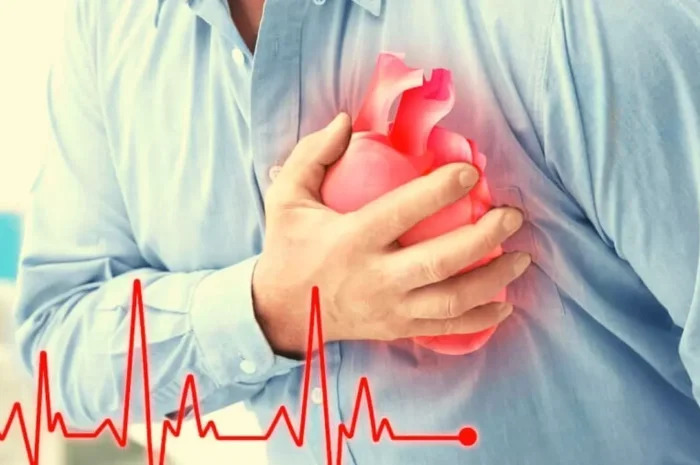
Heart Attack Issue in India
In recent years, India has witnessed an alarming rise in heart attacks among young people. The COVID-19 pandemic appears to have exacerbated this trend, with numerous cases of young individuals succumbing to sudden heart attacks.
What was once considered a rare occurrence has now become a widespread concern. It is increasingly common to hear about seemingly healthy individuals experiencing sudden cardiac events. This growing prevalence is alarming, as heart attacks pose a significant threat to life.
One of the major challenges is the lack of awareness about underlying health risks. Many individuals are unaware of potential cardiac conditions they might have, which often leads to delayed treatment and, tragically, premature death. Beyond the emotional trauma, families are left to bear the weight of severe financial burdens.
This issue demands urgent attention to create awareness, prioritize preventive measures, and ensure that timely treatment is accessible to all. Only then can we hope to combat this silent yet deadly threat effectively.
To address this critical issue, two primary approaches are essential:
Creating a Strong Financial Platform for Treatment:
Heart attack treatment is often expensive, involving surgeries, medications, and post-operative care. To ensure that no life is lost due to financial constraints, a robust economic framework needs to be established.Preventative Measures and Early Diagnosis:
Preventing heart attacks and ensuring timely intervention are equally critical. Regular health check-ups and monitoring can significantly reduce the risk and improve outcomes.
A Practical Solution: The “Heart Attack Group”
To tackle this issue holistically, we propose the formation of a “Heart Attack Group” with the following key features:
Mandatory Annual Check-Ups:
All members of this group, comprising 10,000 individuals, will undergo mandatory yearly screenings for heart-related conditions. These screenings will be provided free of charge, ensuring affordability and accessibility.Emergency Financial Assistance:
In the event of a heart attack requiring surgical intervention, every member will contribute a nominal amount maximum up to ₹100 towards the treatment fund. This collective effort will enable the group to provide up to ₹10 lakhs in financial assistance for an individual’s treatment, alleviating the burden on families during critical times.

Age-Wise Risk Assessment and Heart Attack Prevention Initiative
To address the growing concern of heart attacks and ensure targeted preventive measures, we are forming a structured group of 10,000 members categorized by age and associated risk levels. This approach allows us to focus on age-specific health risks and promote regular check-ups and timely intervention.
Age-Wise Group Classification and Risk Levels
Age Group: 21 to 35 Years
- Risk Level: Low
- Characteristics:
Young adults in this group are considered to have a comparatively lower risk of heart attacks. However, lifestyle factors like stress, poor diet, lack of exercise, and smoking can contribute to early onset risks. - Focus:
- Promoting healthy habits like regular exercise, balanced diets, and stress management.
- Conducting annual basic health screenings to detect early warning signs.
Age Group: 35 to 50 Years
- Risk Level: Medium
- Characteristics:
This group is more vulnerable due to lifestyle-related stress, higher responsibilities, and the beginning of age-related cardiovascular changes. - Focus:
- Regular screenings, including cholesterol, blood pressure, and glucose levels.
- Encouraging weight management and periodic cardiac evaluations.
Age Group: 51 to 60 Years
- Risk Level: High
- Characteristics:
The risk of heart attacks significantly increases in this age group due to aging and the cumulative impact of lifestyle and hereditary factors. - Focus:
- Comprehensive cardiac check-ups, including ECG and stress tests, every six months.
- Promoting medication adherence for existing health conditions like diabetes and hypertension.
Age Group: Above 60 Years
- Risk Level: Major
- Characteristics:
Individuals in this group face the highest risk of heart attacks due to age-related degenerative changes and existing comorbidities. - Focus:
- Frequent and detailed cardiac monitoring.
- Providing immediate access to advanced medical care and ensuring medication compliance.
Preventive Measures and Care Framework
Mandatory Annual Health Check-Ups:
Each member will undergo mandatory age-specific health screenings to identify risk factors early.Awareness Campaigns:
Educational programs to inform members about lifestyle modifications, warning signs, and emergency response.Emergency Assistance Plan:
A financial aid system to support individuals requiring urgent treatment, ensuring affordability and access to care.
Why This Initiative Matters
Heart attacks can strike without warning, making preparedness essential. A platform like the “Heart Attack Group” ensures that individuals have access to preventive care and financial aid when needed. By fostering a sense of community responsibility and prioritizing health, we can combat the growing menace of heart diseases effectively.
Together, we can build a healthier society where timely diagnosis and treatment are not privileges but guarantees. Let’s take a step towards making heart health a priority for all.
FAQs on Heart Attack Cases in India
During a heart attack, taking an aspirin may be beneficial because it keeps the clot from becoming larger, allowing the body to break down the blood clot.
Heart attacks can occur in people due to factors such as sedentary lifestyle, unhealthy dietary habits, and high blood pressure.
Young individuals are more likely to suffer heart attacks due to sedentary lifestyles, inadequate nutrition, elevated stress, smoking, and underlying medical issues; these factors highlight the significance of preventative actions.
Yes, although uncommon, a 25-year-old can have a heart attack. Genetic factors, unhealthy lifestyle choices, substance abuse, and underlying medical conditions may contribute to cardiac issues at a young age.
The majority of heart attacks are characterised by left or central chest pain that either lasts for several minutes or periodically returns.
No, checking heart blockage at home is not possible. Diagnostic tests such as angiography, CT scans, or echocardiograms are required, and these should be performed by medical professionals.
